MercoPress. South Atlantic News Agency
Tag: Chile
-
Saturday, November 16th 2019 - 09:59 UTC
Chilean parties agree on mechanisms to replace the Pinochet era constitution

Chilean lawmakers agreed on Friday to hold a referendum next April on replacing the country’s unpopular Pinochet-era constitution, bowing to demands of protesters who say the country’s decades-old social model has created deep inequality.
-
Friday, November 15th 2019 - 09:58 UTC
Chile's Thursday demonstrations recalled the anniversary of the death of a Mapuche leader by police
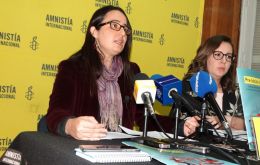
Demonstrators gathered in Chile's public squares on Thursday for another round of protests, which have paralysed daily life for almost a month. This time protests were pegged to the anniversary of a young indigenous man Mapuche, who was shot dead by police in circumstances that are still under investigation. At least 24 people have died and thousands injured in clashes between protesters and police.
-
Friday, November 15th 2019 - 09:50 UTC
New record high for the US dollar in Chilean markets: 820 Pesos
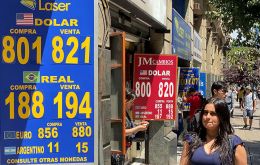
Chile's central bank announced a US$ 4 billion injection to stop a currency slide that saw the peso reach historic lows on successive days this week. The peso fell to 820 to the dollar at the close Thursday, breaking the 800 Pesos milestone.
-
Friday, November 15th 2019 - 09:50 UTC
Tens half blind in Chile as riot police open fire with rubber bullets close range
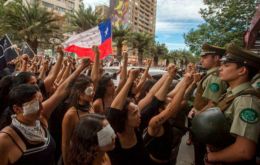
Running away as shots rang out, Carlos Vivanco turned to see where they were coming from. Then he felt his left eye closing and his face dripping with blood. The 18-year-old student had become one of the scores of people hit in the eyes, and in some cases blinded, by police rubber bullets in Chile's recent wave of anti-government protests.
-
Thursday, November 14th 2019 - 08:48 UTC
Chilean bishops appeal for calm and recall what happens when the breakdown of institutions
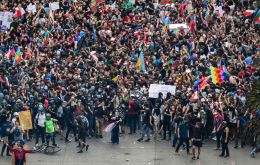
In an appeal to the politicians and people of Chile, the Bishops’ Conference reminds them of what history teaches about the breakdown of institutions, urging all men and women of goodwill to put an end to the violence of every kind.
-
Wednesday, November 13th 2019 - 09:49 UTC
Protests continue in Chile as economy faces “grave consequences” and Peso plunges to a historic low

Chile’s finance minister warned on Tuesday of the “grave consequences” for the nation’s economy of three weeks of often violent unrest after the peso slid 4% to hit a historic low against the dollar. Ignacio Briones said the weakening of the peso was a “sign of worry” that he and his colleagues were watching very carefully.
-
Saturday, November 9th 2019 - 10:55 UTC
Chilean popular discontent spills over to the country's elite
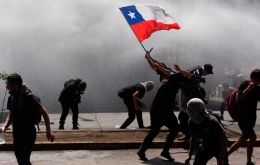
Chile's long-untouchable elite is now bearing the brunt of popular anger spilling onto the country's streets, and analysts say the signals have been there for years. Resource-rich Chile has long been seen as a stable democracy with South America's highest per-capita income, but economic and political power has rested in the hands of the relative few
-
Saturday, November 9th 2019 - 10:50 UTC
Huge peaceful demonstration in Santiago, but radicals loot a church and university

Around 75,000 people took to the streets in Santiago on Friday as part of ongoing anti-government protests in Chile. Local press reported the mostly peaceful demonstration as the second-largest since the protests broke out three weeks ago.
-
Saturday, November 9th 2019 - 10:40 UTC
“Street” doctors and nurses assist hundreds of injured in Santiago de Chile

Someone hundred Chilean doctors and nurses hit the streets shortly after riots broke out in Chile weeks ago, diving into the fray amid clouds of tear gas and volleys of rubber bullets behind just simple white shields.
-
Friday, November 8th 2019 - 09:54 UTC
Chile tightens public order in the wake of three weeks of anti government protests and looting
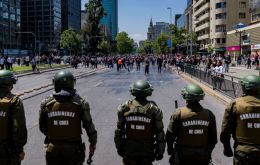
Chile's President Sebastian Piñera on Thursday announced a series of measures to tighten public order in the wake of three weeks of anti-government protests that have left at least 20 people dead.
